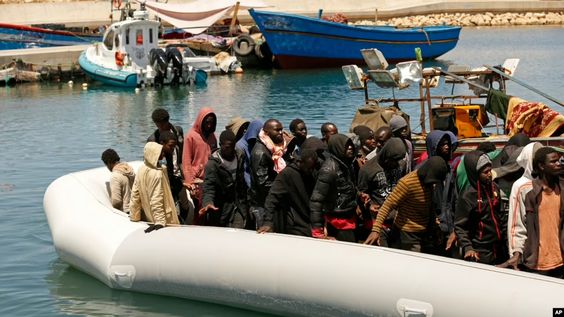Africa
Allegedly Committing War Crimes with Impunity: Libyan State and Armed Militia Groups

U.N. investigators have charged Libyan state security forces and armed militia groups with a variety of crimes, many of which may qualify as war crimes and crimes against humanity, that they have committed with impunity.
Monday saw the release of the final report by the three-person U.N. Independent Fact-Finding Mission on Libya, which examined what it called “the country’s deteriorating human rights situation” since the start of 2016. Furthermore, it paints a bleak picture.
Numerous instances of extrajudicial killing, rape, enslavement, murder, arbitrary detention, and forced disappearance have been documented by the investigation. Despite the seriousness of these crimes, the investigators noted that almost all of the survivors they spoke with were afraid to report them publicly “for fear of retaliation, arrest, extortion, and a lack of confidence in the justice system.”
There is “overwhelming evidence that migrants have been tortured while in detention and that sexual slavery, a crime against humanity, was committed against migrants,” according to Mohamed Auajjar, chair of the Libya Fact-Finding Mission.
The U.N. investigators’ collection of factual data revealed that state institutions, organisations, and people were involved in the commission of violations and abuses.
The mission discovered that migrants had been the victims of crimes against humanity in facilities that were either under the actual or apparent control of the Libyan Directorate for Combating Illegal Migration, the Libyan Coast Guard, and other organisations.
The European Union and its member states provided these entities with technical, logistical, and financial support, according to Auajjar.
Member of the mission Chaloka Beyani added that “the support given by the EU to the Libyan coast guard in terms of fallbacks, pushbacks, and interceptions leads to violations of certain human rights.”
He explained that under the principle of non-refoulement, “you cannot send people back to dangerous places, and it is quite obvious that the Libyan waters are dangerous for migrant embarkations.”
The mission’s documentation of ongoing, widespread crimes strongly suggests that affiliated militias as well as personnel from security and military agencies at all levels of the hierarchy are also involved.
The majority of the violations and abuses that the mission looked into had to do with militias and other state-affiliated groups consolidating their power and wealth, according to Auajjar. Without a doubt, the widespread exploitation of vulnerable irregular migrants generated a sizable amount of income that encouraged the continuation of the violations noted.
Since the U.N. human rights council established the mission in June 2020, it has made 13 field trips to Libya. More than 2,800 pieces of information have been gathered, including more than 400 interviews with survivors and witnesses.
When the mission started its investigation, more than 670,000 migrants from more than 41 countries were in Libya, and since 2021, these numbers have been rising.
Although it thinks that number is greatly understated, the International Organisation for Migration estimates that there are about 5,000 migrants being held in official detention facilities. It is unknown how many migrants are held in secret jails run by militia organisations.
In addition to refugees and asylum seekers, many of the migrants come from Afghanistan and West and East Africa.
According to Beyani, the smuggling and trafficking of migrants have grown significantly as a source of revenue in Libya. Geographical factors, according to him, heavily influence which migrants are most likely to be abducted and held for ransom.
Therefore, those arriving from East Africa, for instance, are subjected to a lower price for smuggling and trafficking than those arriving from West Africa.
“It’s thought that they might have a lot more money in this regard,” he continued.
According to the report, there are good reasons to think that rape was committed as a crime against humanity and that migrants “were enslaved in official detention centres as well as secret prisons’.”
According to the report, detainees were routinely tortured, kept in solitary confinement, held without communication, and denied adequate access to water, food, restrooms, medical care, and other necessities.
It also condemned the systematic mistreatment of women in Libya, stating that things have significantly gotten worse for them over the past three years.
The mission urges criminal accountability at the local and global levels to put an end to impunity. It also suggests assisting Libya’s judiciary in enhancing its capacity for accountability.
The investigators are requesting the immediate release of everyone who has been detained in Libya against their will as well as the closure of any secret prisons. It emphasised the need to hold those responsible for flagrant violations of human rights accountable for their actions.
The report will be delivered to the U.N. Human Rights Council later this week.
